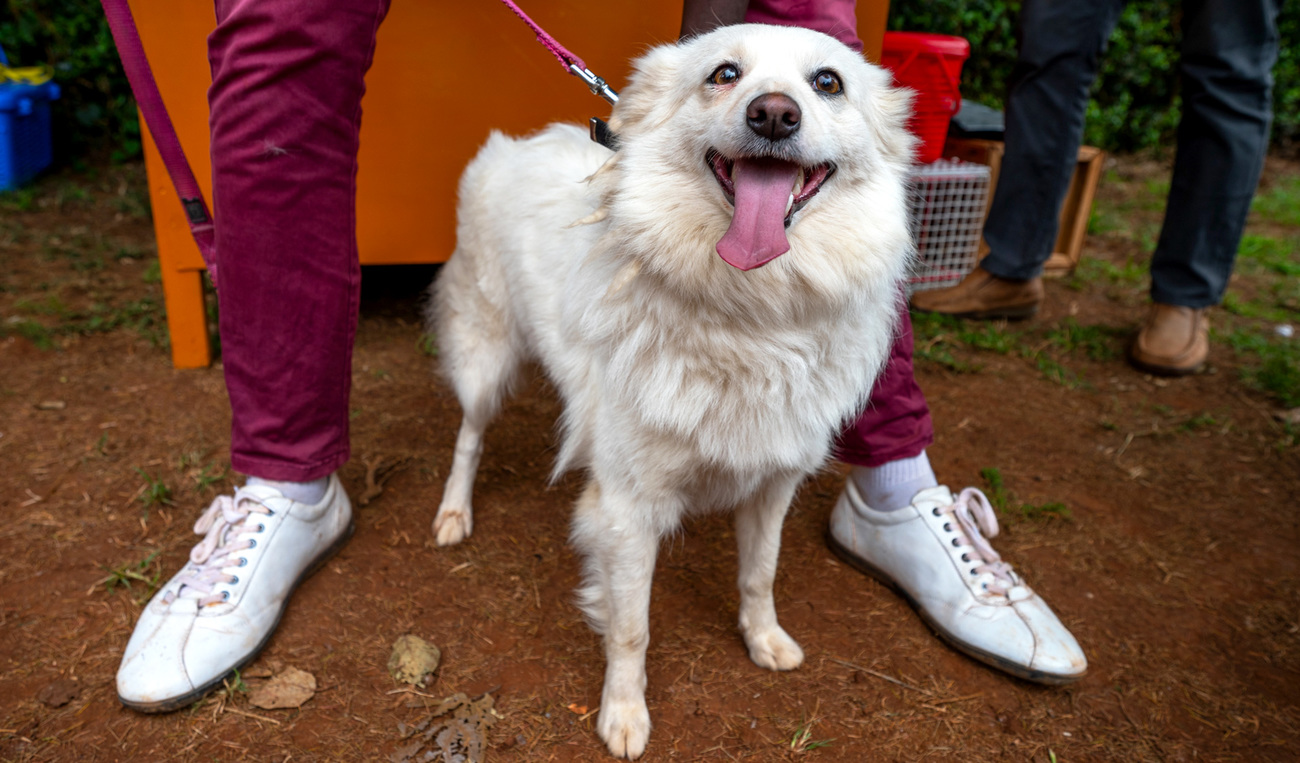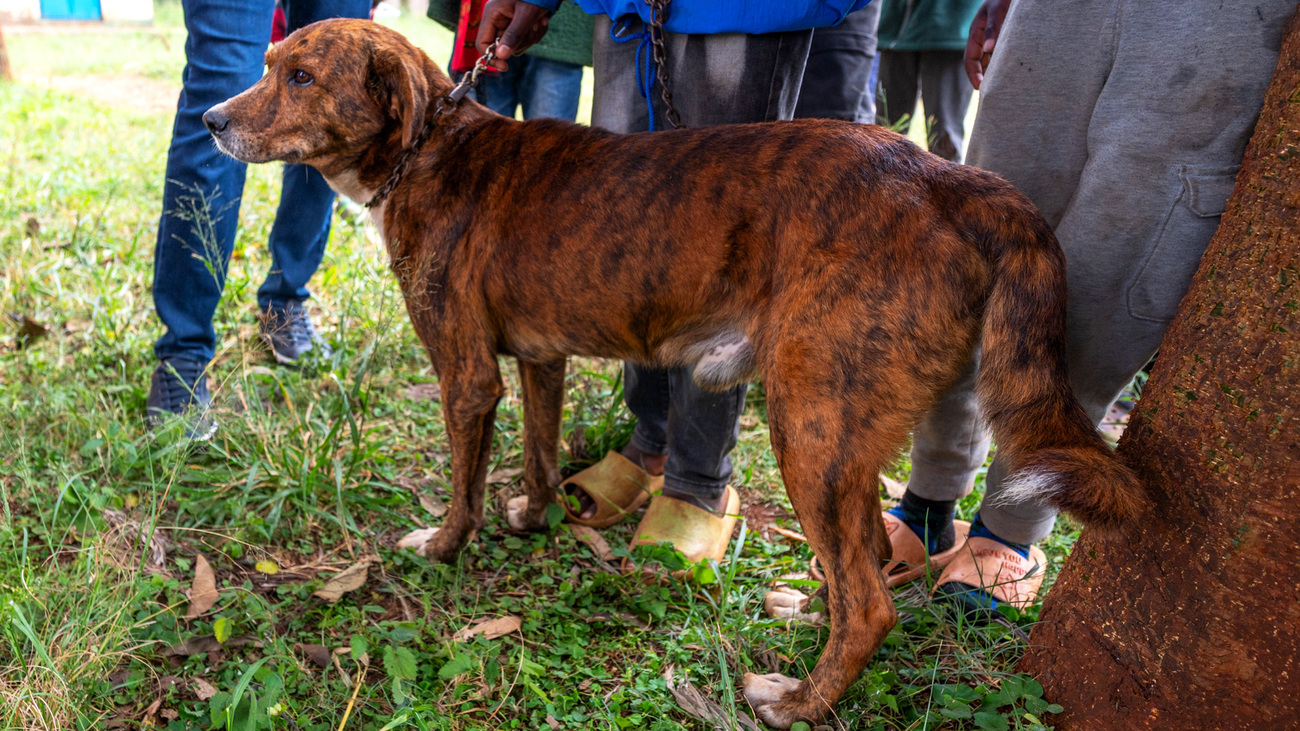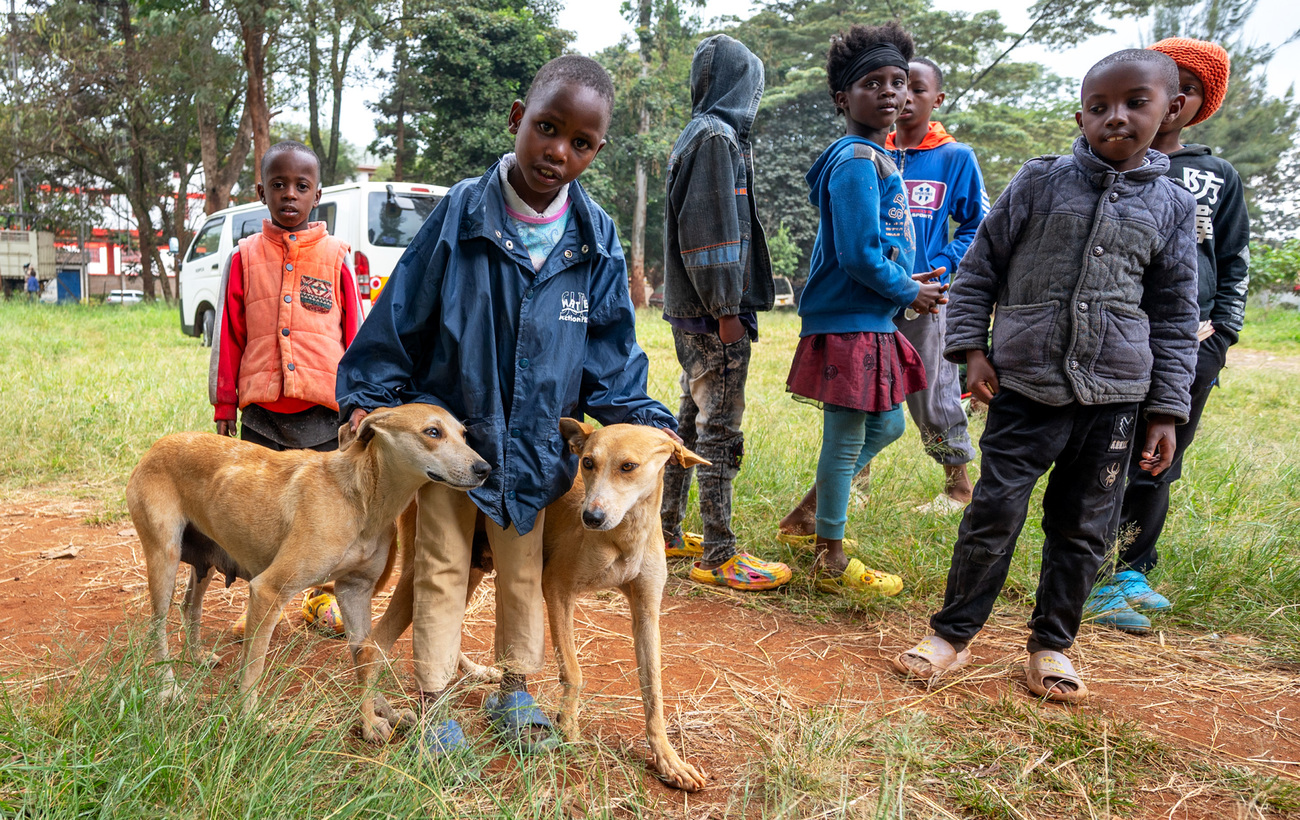James Isiche
You put your life on the line. The people who come to poach elephants...come with sophisticated weapons. You have to be alert. All the time. But if you take it like a calling, it’s very rewarding.
Rabies vaccination campaign in Kenya safeguards people and animals
Following the deadly floods in Nairobi that killed at least 235 and displaced over 260,000 people in May 2024, a fierce battle against an invisible yet deadly enemy ensues at Waithaka Police station, with animal health specialists leading the charge.

Armed with syringes and needles and dressed up in scrubs, a spirited team of volunteers, veterinarians, and pet lovers from the Kenya Society for the Protection and Care of Animals (KSPCA) hastily set up a makeshift clinic in preparation for an ambitious vaccination campaign aimed at curbing the spread of a fatal zoonotic disease—rabies.
Floods not only disrupt community livelihoods, animals, and ecosystems, but they can also spark the spread of zoonotic diseases, as they bring animals and people into closer contact. This is exemplified by the outbreak of rabies in Nairobi. Through our partner, KSPCA, we were able to identify rabies hotspots and help set up mobile vaccination centers.
According to the World Health Organization, about 59,000 people die from rabies annually—with 95% of these cases occurring in Africa and Asia. In Kenya alone, rabies is estimated to kill close to 2,000 people per year. Nairobi, a city of more than 5.5M people, has seen a recent spike in rabies cases.
Rabies is most often caused by bites from infected dogs and cats, which pass the disease to humans and other mammals through their saliva. While rabies has no cure, one way to mitigate its spread is through the vaccination of pets. In many parts of the world, vaccinations have helped eliminate it.
Last month, IFAW partnered with the KSPCA in a concerted effort to vaccinate companion animals and to halt the spread of the fatal disease from domesticated animals to humans and wildlife.

Weeks before the campaign, a mass education drive by four KSPCA inspectors visited community social centres, schools, markets, and churches to explain the dangers of the disease and the importance of vaccinating pets.
On Saturday, 24 August 2024, the KSPCA and volunteers launched a vaccination event that swept through Waithaka and Gikambura in Nairobi. The Waithaka Police Station was a beehive of activity, with a throng of hundreds of owners arriving with their four-legged friends for the lifesaving shots—given free of charge.
Among them was ten-year old Emmanuel Wainaina, who came with his two dogs, Scooby and Mickey. The vaccine normally costs US$42 per dog. For Emmanuel, that would be an $84 fee. It is a cost way beyond the means of most families. Providing vaccinations free of charge can save lives.

KSPCA veterinarian Guyo Huqa stresses that rabies vaccinations are not just about protecting animals and saving money, but crucially about prioritising and safeguarding public health.
’Rabies is a viral zoonotic disease that has no cure but is vaccine preventable,’ he explains. ‘Failing to vaccinate dogs puts the lives of people at risk from infected pets and street dogs.’
By sunset, a total of 147 dogs and 109 cats had been vaccinated—a remarkable achievement in the fight against the fatal disease.
Vaccinations of dogs within communities adjacent to wildlife areas is also critical to ecosystem health, as the diseases can be transmitted to other mammals.
In 2017, following a deadly outbreak of canine distemper virus from dogs in the local community, African wild dogs within Laikipia County in Northern Kenya were almost entirely wiped out. The tragic situation would have been prevented had there been a strategic intervention to vaccinate local community dogs against the virus.
Today, the survival of African wild dogs is still seriously threatened by diseases including rabies and canine distemper. They are an important but endangered predator in the ecosystems of sub-Saharan Africa.
While we can’t vaccinate wild animals, together with communities, we can vaccinate pets. With efforts like these, we can help eliminate this major threat to wildlife.
James Isiche
You put your life on the line. The people who come to poach elephants...come with sophisticated weapons. You have to be alert. All the time. But if you take it like a calling, it’s very rewarding.
Our work can’t get done without you. Please give what you can to help animals thrive.
Unfortunately, the browser you use is outdated and does not allow you to display the site correctly. Please install any of the modern browsers, for example:
Google Chrome Firefox Safari